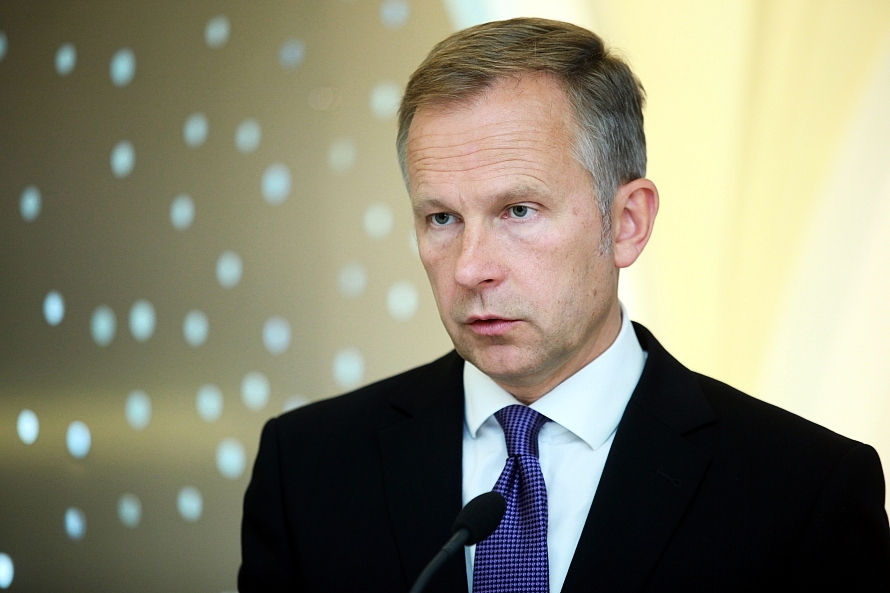On total, he gives the budget an eight out of ten, which corresponds to 'very good' in the evaluation scale of the Latvian education system.
Rimšēvičs commended the fact that this is the budget that was prepared in the most timely manner in the last few years, though adding that "we could always wish for a better one".
He said that it's good that the government hadn't tampered with the Value Added Tax, though it's a shame that the practice of not changing tax for at least for years in a row has not been introduced in Latvia. According to Rimšēvičs, every new government should change taxes once and state that they won't change for the next four years. It's important for entrepreneurs who can then plan accordingly.
Next year, growth could slow down though, as indicated by projection cuts for growth and inflation in Europe.
Rimšēvičs also said that there's a lot of money in the economy, but it's stored "in bank accounts and cannot find its way to entrepreneurs and employers," said Rimšēvičs. The explanation for this lies in that it's not known how the situation will change in the next few years.
Meanwhile, Prime Minister Straujuma told Latvian Radio on Thursday that she hopes the state budget will be adapted by November 18 - incidentally, Latvia's 97th proclamation anniversary.
The state budget draft was approved on August 31, and it featured, among other things, excise tax hikes for gasoline and tobacco, a moderate increase in the minimum wage and an increase in nontaxable income minimum.
The next year's budget priorities are security, interior, healthcare and education, while the other ministries will have to cut spending by 3%. Latvia's GDP growth forecast for 2016 is 3%, the inflation forecast at 2% and the budget deficit will stand at 1% of GDP.






























